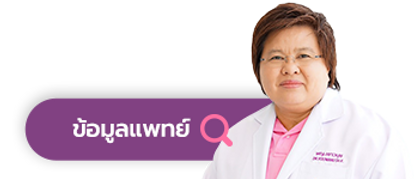Soy and breast cancer
- Youwanush Kongdan
- Aug 26, 2025
- 2 min read
Soy and Breast Cancer: Solved with Facts from Research

The belief that soy consumption may increase breast cancer risk has long been a source of confusion, but global human research is now clear: consuming soy products in food not only does not increase breast cancer risk, but may actually help reduce it.
1. Why have there been such false beliefs?
The concern in the past arose from a substance in soy called isoflavones, which have a similar structure to the hormone estrogen, hence the term phytoestrogen or plant estrogen. Early research in animals (such as mice) found that this substance may stimulate the growth of cancer cells.
Fact: The human body metabolizes isoflavones completely differently than animals. Large-scale studies involving hundreds of thousands of people worldwide have shown contradictory results, and have found that soy phytoestrogens may even have a protective mechanism against breast cancer.
2. The actual working mechanism in the human body
Soy isoflavones are estrogen-like substances that are hundreds of times weaker than the body's own estrogen. Imagine that your cells have "receptors" that are like a padlock. The isoflavones bind to those receptors (like a key that doesn't fit properly), preventing the body's own, more potent estrogen from being able to bind to and stimulate the cells. This may help reduce the growth of cells that respond to the hormone.
3. Evidence-based: Reduces risk and is safe for patients.
Reduces the risk of disease: Research in Asian populations found that regular consumption of soy can reduce the risk of breast cancer by 15–30%, especially when consumed continuously during childhood and adolescence, when breasts are developing.
Safe for Breast Cancer Patients: Recent data from Survivor Studies confirm that moderate soy consumption does not cause the disease to recur and does not interfere with treatment outcomes. Moreover, it is likely to reduce the recurrence rate and increase survival.
4. Advice for wise and safe consumption
Choose “foods” not “supplements”: Consuming soybeans from natural sources, such as tofu, soy milk, soy milk, edamame, tempeh, or miso, are safe and contain other beneficial nutrients.
Appropriate Amount: Research suggests that moderate consumption is safe and beneficial, around 1-2 servings per day (example: 1 cup soy milk, about 100 grams or 1/2 cup tofu).
Avoid concentrated supplements: High-dose "isoflavones" supplements should be avoided as there is no clear long-term safety data. If you are sick or in a high-risk group, consult your doctor before taking any supplements.
Conclusion
Eating "soy foods" is safe for both the general public and breast cancer patients.
There is strong scientific evidence that it may help reduce the risk of developing the disease and may reduce the chances of it coming back.
It is important to focus on consuming natural foods in moderation and avoiding concentrated isoflavone supplements.
Therefore, you can comfortably eat soy foods as part of your daily healthy menu.





Comments